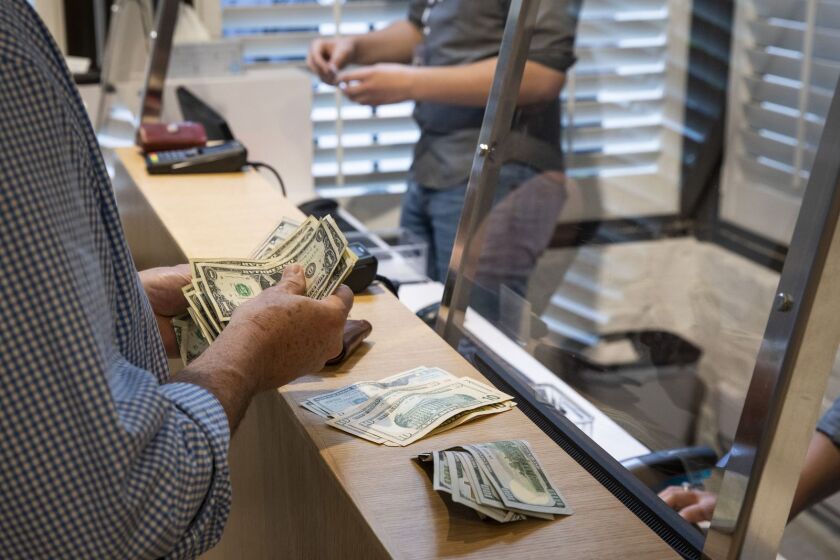Tired of waiting for African Americans to get their fair share of Chicago’s recreational marijuana business, a pair of City Council members are taking matters into their own hands.
Alds. Leslie Hairston (5th) and Roderick Sawyer (6th) want companies seeking to open new cannabis dispensaries in Chicago within 1,500 feet of existing dispensaries to provide “certified evidence” every year that they are indeed “social equity” applicants.
That’s a designation created by the state to try to diversify the lily-white weed industry. While the state already has a detailed process to determine who qualifies, the two want to take it further after some of the initial finalists for social equity licenses turned out to be deep-pocketed and with strong connections to political insiders and existing industry.
“We are just making sure that the licenses go to the social equity applicants who are the ones that are supposed to be benefitting from this,” Hairston told the Sun-Times.
“That’s what it’s for. It’s for social equity. ... That hasn’t happened in two years,” she said, referring to the long wait social equity applicants hoping to open dispensaries have endured while the state attempts to fix the problem. “ ... It’s never too late.”
The ordinance introduced by Hairston and Sawyer at Thursday’s City Council meeting would require applicants to submit an avalanche of financial documents to City Council members.
That includes a resume for each principal officer and board member; a copy of the applicant’s proposed business plan; and financial disclosures and other “evidence” submitted to the state to win the social equity designation.
“If a proposed adult use cannabis dispensary is unable to establish its qualification as a Social Equity Applicant or Social Equity Justice Involved Applicant to the satisfaction of the alderman, at the sole discretion of the alderman the proposed adult use cannabis dispensary may not be located within 1,500 feet of an existing adult use cannabis dispensary,” the ordinance states.
“If at any time an adult use cannabis dispensary no longer qualifies as a Social Equity Applicant or Social Equity Justice Involved Applicant,” the special use permit that allowed the business to locate within 1,500 feet of an existing dispensary shall be declared “null and void.”
That would force the business to return to the Zoning Board of Appeals for a new special use permit.
Jason Erkes, spokesman for Cresco Labs, said the company with retail stores in River North and Wrigleyville is all for ensuring that “social equity licenses go to true social equity candidates” and not to white-owned “fronts.”
His only reservation is the amount of “red-tape and bureaucracy” that might be needed to enforce the ordinance.
“I just think of what something like this would create. How many more layers of bureaucracy? How much more difficult it could make it for someone to open and maintain a business?” Erkes said.
Hairston dismissed red tape concerns.
“Most people want to know that the social equity applicants are actually social equity applicants,” she said.
Pam Althoff, executive director of the Cannabis Business Association of Illinois, said the proposed ordinance is the product of pent-up frustration in the City Council.
“There has been stated concerns by many that those people who applied under the definition of social equity are not really Black and Brown individuals or organizations,” Althoff said. “This is a way the aldermen are attempting to ensure diversity within the industry and within the confines of the city of Chicago.”
Those longstanding frustrations were on full display on the day a divided City Council voted 33 to 13 to approve Mayor Lori Lightfoot’s stalled plan to shrink the downtown “exclusion zone” to a sliver and relax zoning requirements for cannabis businesses all over Chicago.
Lightfoot portrayed the ordinance on that day as a benefit to minorities who have so far been shut out of the so-called “green rush.” But the mayor’s two most outspoken City Council critics didn’t see it that way.
“Half the people who are going to benefit from this rush job are fronts for individuals who are not true social equity individuals,” Ald. Ray Lopez (15th) said on that day.
Ald. Anthony Beale (9th) tried to shame his colleagues on the Black Caucus into taking a stand.
“When are we gonna stop going along to get along? ... The people of our community have been hurt. Half of these people are fronts. The other half are gonna sell their licenses. When are we gonna stand up for our community?” Beale said.





